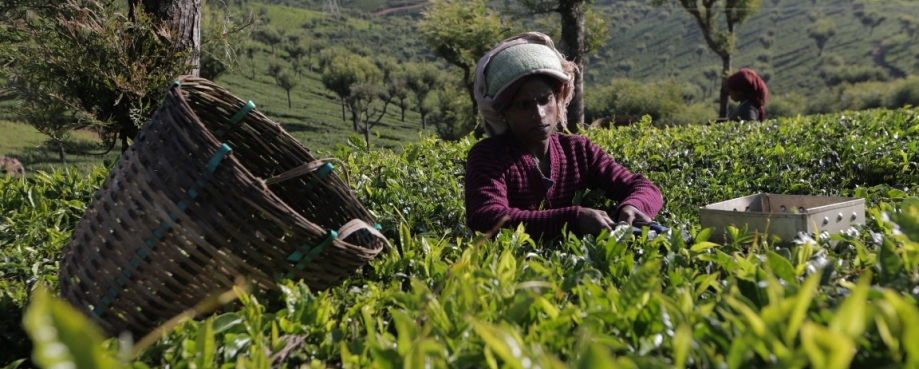
In this guest blog, Wilbert Flinterman, Senior Advisor Workers' Rights and Trade Union Relations at ETI member Fairtrade International, reprises a speech he made to the ILO about the importance of making the linkages between the United Nations Guiding Principles on Business and Human Rights (UNGPs), corporate social responsibility and Fair Trade in global food and farming supply chains – and how this can benefit workers.
It’s a familiar story, but one worth repeating: sourcing goods on the cheap can stand in the way of better lives for the workers that make those goods. Many consumers are aware of examples from the world of textiles, but the same principle holds true in global supply chains for food products.
At the International Labour Conference of the ILO held earlier this year in Geneva, the UN Guiding Principles on Business and Human Rights (UNGPs) were recognised by representatives of workers, employers and government as an essential framework for promoting decent work in global supply chains.
So far, so good - but what does that mean in practice?
It means that the three constituencies in the ILO now agree that it’s not only employers in the global south that hold the key to better labour conditions for their workers, but that responsibility also lies with global buyers who hold considerable sway over employment practices in the local workplaces they source from.
Linking the UNGPs to corporate social responsibility
The UNGPs are an enlightened approach to corporate social responsibility, because they challenge companies that say they are not responsible for the social impact of their business practices.
The Guiding Principles are based on the premise that businesses have a duty to make sure they don’t cause or contribute to human rights abuses, or are linked to other companies doing that.
Businesses cannot shirk their responsibility as buyers, just because the workers that pick, pack or produce the goods they sell are not actually on their pay-roll.
The key point is that buying companies are usually the most powerful actor in the supply chain. They can have a huge influence over the pay and working conditions in the factories or farms they source from.
As such, they have the opportunity – and under the UNGPs, they now have the duty – to help prevent human rights abuses and to step in and use their leverage to resolve them.
From this point of view, to give just one example, it's not good enough for buyers to police their producers to eliminate excessive overtime, while at the same time prices are so squeezed that producers cannot pay a Living Wage.
Within the Guiding Principles, companies must look at the full spectrum of their relationship with suppliers. That doesn’t mean simply responding to human rights issues with a sticking plaster. It does mean taking all their commercial practices into consideration.
This is where Fair Trade comes in.
Promoting economic justice through Fair Trade
For decades, Fairtrade International and other members of the global Fair Trade movement have promoted economic justice as the key to improving the lives of the most vulnerable people in global supply chains.
Besides rigorous social and environmental standards, Fairtrade has introduced minimum prices and the Fairtrade Premium as economic instruments to improve livelihoods of farmers and workers.
Fairtrade is not in the business of giving hand-outs, but in getting a better deal for the world’s poorest farmers and workers.
We believe that trade can and should be used to help close the gap between rich and poor.
Fairtrade is growing - last year there were 1.6 million Fairtrade farmers and workers across 75 countries, benefitting from an estimated €138 million in Fairtrade Premium.
But that’s still a drop in the ocean, and real trade justice will only be achieved when consumer demand, and more importantly retailer demand, is massively scaled up. Increased Fairtrade sales have been shown to be a significant driver of economic improvement.
However, consumers are only one part of the equation.
The role of retailers
Retailers can play their part both by creating demand and committing to ethical sourcing.
In that sense, Fairtrade can be an important means to apply the UNGPs, in the way it serves to promote both social and economic justice.
That doesn't mean simply outsourcing social responsibility.
Increasingly, many international companies purchasing under Fairtrade terms want to learn about the impact Fairtrade has and where the challenges remain. They want to be partners, understanding that international development is a work in progress.
Fairtrade knows there are no quick fix solutions to tackling inequality, creating opportunity and ending exploitation. There is a heap of work still to do in parts of the world where farmers and workers still live in abject poverty, even though they produce into global supply chains.
That shouldn't be too much of a surprise, given that many commodity prices for both food and non-food products from the global south have often been cut and cut again.
As I stressed in my speech to the ILO conference, decent work in global supply chains can only become reality when buyers take responsibility for the impact their trading practices have on the rights of farmers and workers.
Download ETI's business and human rights due diligence guidance
The photograph of a tea picker working on a Fairtrade certified tea estate in India is © Siddarth Selvaraj / Fairtrade International
